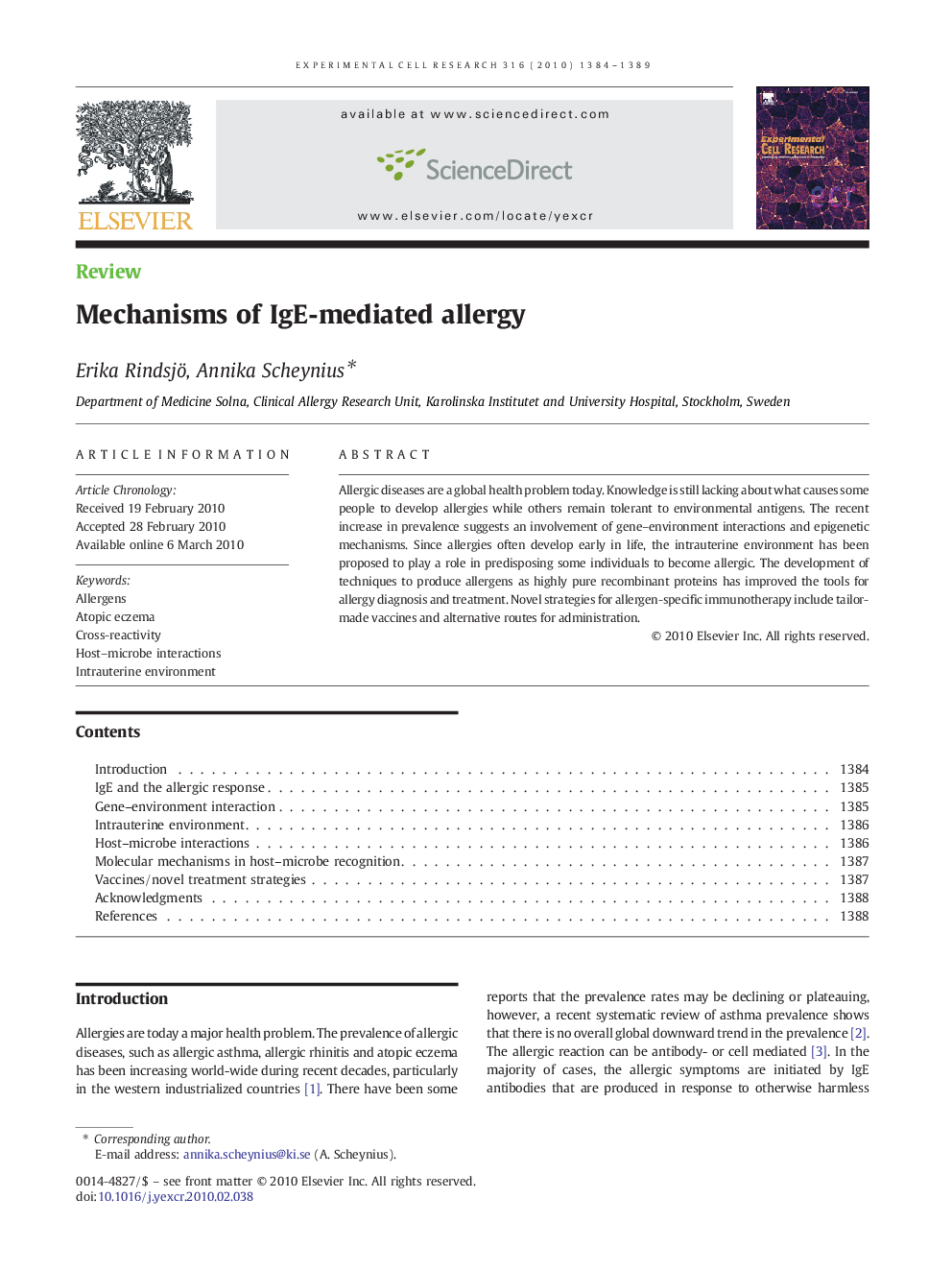| Article ID | Journal | Published Year | Pages | File Type |
|---|---|---|---|---|
| 2131485 | Experimental Cell Research | 2010 | 6 Pages |
Abstract
Allergic diseases are a global health problem today. Knowledge is still lacking about what causes some people to develop allergies while others remain tolerant to environmental antigens. The recent increase in prevalence suggests an involvement of gene–environment interactions and epigenetic mechanisms. Since allergies often develop early in life, the intrauterine environment has been proposed to play a role in predisposing some individuals to become allergic. The development of techniques to produce allergens as highly pure recombinant proteins has improved the tools for allergy diagnosis and treatment. Novel strategies for allergen-specific immunotherapy include tailor-made vaccines and alternative routes for administration.
Related Topics
Life Sciences
Biochemistry, Genetics and Molecular Biology
Cancer Research
Authors
Erika Rindsjö, Annika Scheynius,
